The Week in Freethought History (November 11-17)
Here’s your Week in Freethought History: This is more than just a calendar of events or mini-biographies – it’s a reminder that, no matter how isolated and alone we may feel at times, we as freethinkers are neither unique nor alone in the world.
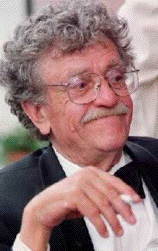 Last Sunday, November 11, but in 1922, science fiction and satire writer Kurt Vonnegut Jr. was born. A World War Two veteran, Vonnegut is known chiefly for his novels Mother Night (1962), filmed in 1996, Cat’s Cradle (1963), and his 1969 novel Slaughterhouse Five, filmed in 1972, in which he recalled some of his war experience. Slaughterhouse Five elevated Vonnegut to #1 on the New York Times best-seller list. Vonnegut’s other novels include Breakfast of Champions (1979) and Timequake (1997), in addition to essays, short stories, and screenplays. Vonnegut was known for his humanist beliefs and was 1992 Humanist of the Year, honorary president of the American Humanist Association and a lifetime member of the American Civil Liberties Union. In an interview in Free Inquiry magazine, he said, “For at least four generations my family has been proudly skeptical of organized religion.” In his autobiographical book, Palm Sunday, Vonnegut interviews himself, asking how he was affected by his study of anthropology at the University of Chicago. Vonnegut answers, “…it confirmed my atheism, which was the religion of my fathers anyway.”
Last Sunday, November 11, but in 1922, science fiction and satire writer Kurt Vonnegut Jr. was born. A World War Two veteran, Vonnegut is known chiefly for his novels Mother Night (1962), filmed in 1996, Cat’s Cradle (1963), and his 1969 novel Slaughterhouse Five, filmed in 1972, in which he recalled some of his war experience. Slaughterhouse Five elevated Vonnegut to #1 on the New York Times best-seller list. Vonnegut’s other novels include Breakfast of Champions (1979) and Timequake (1997), in addition to essays, short stories, and screenplays. Vonnegut was known for his humanist beliefs and was 1992 Humanist of the Year, honorary president of the American Humanist Association and a lifetime member of the American Civil Liberties Union. In an interview in Free Inquiry magazine, he said, “For at least four generations my family has been proudly skeptical of organized religion.” In his autobiographical book, Palm Sunday, Vonnegut interviews himself, asking how he was affected by his study of anthropology at the University of Chicago. Vonnegut answers, “…it confirmed my atheism, which was the religion of my fathers anyway.”
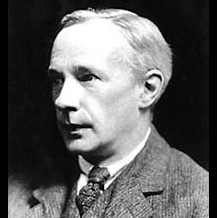 Also last Sunday, November 11, but in 1922, English philosopher George Edward Moore was born. One of the founders of the analytic tradition in philosophy, G.E. Moore, along with Bertrand Russell, led the turn away from idealism in British philosophy. In his “open question argument,” Moore contended that “goodness” cannot be defined in other words, just as “yellow” cannot be described to a blind person – each can only be described by indication, not by definition. Without an objective definition, “good” can be described only by “moral intuitions” (Principia Ethica, 1903). In a 1912 work called Ethics, Moore writes candidly, “I think myself that in all probability there is no such thing – neither a God nor any being such as philosophers have called by the names I have mentioned.”
Also last Sunday, November 11, but in 1922, English philosopher George Edward Moore was born. One of the founders of the analytic tradition in philosophy, G.E. Moore, along with Bertrand Russell, led the turn away from idealism in British philosophy. In his “open question argument,” Moore contended that “goodness” cannot be defined in other words, just as “yellow” cannot be described to a blind person – each can only be described by indication, not by definition. Without an objective definition, “good” can be described only by “moral intuitions” (Principia Ethica, 1903). In a 1912 work called Ethics, Moore writes candidly, “I think myself that in all probability there is no such thing – neither a God nor any being such as philosophers have called by the names I have mentioned.”
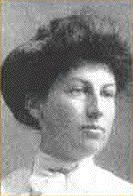 Last Monday, November 12, but in 1815, feminist pioneer Elizabeth Cady Stanton was born. As a girl she flirted briefly with fundamentalism, but her father nipped that in the bud. As Stanton recalled, his instruction “disabused my mind of hell and the devil and of a cruel, avenging God, and I have never believed in them since.” She studied law under her father, who later became a New York Supreme Court judge. During this period she became a strong advocate of women’s rights. Stanton grew to use the term “Nature” interchangeably with “God” in her speeches, observing that “The Bible and the Church have been the greatest stumbling blocks in the way of women’s emancipation.” In collaboration with the more moderate Susan B. Anthony, Stanton wrote a History of Woman Suffrage (1887-1902), which is highly critical of the churches. Of the Bible she wrote, “I know of no other books that so fully teach the subjection and degradation of women.” In an article entitled “What has Christianity Done for Women?” Stanton replied decidedly: Nothing. Late in her life, Stanton wrote, “I can say that the happiest period of my life has been since I emerged from the shadows of superstitions of the old theologies.” And in her 1898 autobiography, Stanton deplored that “the religious superstitions of women perpetuate their bondage.”
Last Monday, November 12, but in 1815, feminist pioneer Elizabeth Cady Stanton was born. As a girl she flirted briefly with fundamentalism, but her father nipped that in the bud. As Stanton recalled, his instruction “disabused my mind of hell and the devil and of a cruel, avenging God, and I have never believed in them since.” She studied law under her father, who later became a New York Supreme Court judge. During this period she became a strong advocate of women’s rights. Stanton grew to use the term “Nature” interchangeably with “God” in her speeches, observing that “The Bible and the Church have been the greatest stumbling blocks in the way of women’s emancipation.” In collaboration with the more moderate Susan B. Anthony, Stanton wrote a History of Woman Suffrage (1887-1902), which is highly critical of the churches. Of the Bible she wrote, “I know of no other books that so fully teach the subjection and degradation of women.” In an article entitled “What has Christianity Done for Women?” Stanton replied decidedly: Nothing. Late in her life, Stanton wrote, “I can say that the happiest period of my life has been since I emerged from the shadows of superstitions of the old theologies.” And in her 1898 autobiography, Stanton deplored that “the religious superstitions of women perpetuate their bondage.”
 Last Tuesday, November 13, but in 1850, Scottish essayist, poet, and novelist, Robert Louis Stevenson was born. He once quarreled with his father over religion and, thereafter, rarely mentioned his hostility to it. From childhood, Stevenson suffered from tuberculosis. He spend much time convalescing in bed, but spent it creating stories. Stevenson’s first notice came from his 1883 adventure story Treasure Island, which, as was the custom of the day, first appeared serialized in Young Folks magazine. He followed this with the popular A Child’s Garden of Verses in 1885, Kidnapped and The Strange Case of Dr. Jekyll and Mr. Hyde, both in 1886. Stevenson relocated to Samoa, with his wife Fanny and his widowed mother, a move that ultimately prolonged his life. On account of his pious mother, he held prayers at his house daily. But Stevenson’s friend, Francis Watt, states that Stevenson “is properly described as an Agnostic.” And biographer Arthur Johnstone quotes Stevenson himself saying, “I am religious in my own way, but I am hardly brave enough to interpose a theory of my own between life and death. Here both our creeds and our philosophies seem to me to fail.”
Last Tuesday, November 13, but in 1850, Scottish essayist, poet, and novelist, Robert Louis Stevenson was born. He once quarreled with his father over religion and, thereafter, rarely mentioned his hostility to it. From childhood, Stevenson suffered from tuberculosis. He spend much time convalescing in bed, but spent it creating stories. Stevenson’s first notice came from his 1883 adventure story Treasure Island, which, as was the custom of the day, first appeared serialized in Young Folks magazine. He followed this with the popular A Child’s Garden of Verses in 1885, Kidnapped and The Strange Case of Dr. Jekyll and Mr. Hyde, both in 1886. Stevenson relocated to Samoa, with his wife Fanny and his widowed mother, a move that ultimately prolonged his life. On account of his pious mother, he held prayers at his house daily. But Stevenson’s friend, Francis Watt, states that Stevenson “is properly described as an Agnostic.” And biographer Arthur Johnstone quotes Stevenson himself saying, “I am religious in my own way, but I am hardly brave enough to interpose a theory of my own between life and death. Here both our creeds and our philosophies seem to me to fail.”
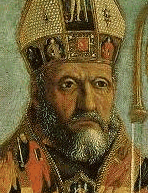 Also last Tuesday, November 13, but in 354, the brilliant Roman Catholic Church Father, Augustine of Hippo, was born. He had a wild youth until, at age 33, after fathering a son out of wedlock, Augustine sobered up. He was finally ordained a Christian priest in 391. The belatedly pious Augustine became Bishop of Hippo at age 42, in 396. His most famous works are the Confessions (399) and Of the City of God (413-426). The Roman Church considers Augustine an oracle from the Middle Ages, so it is useful to remember that he did not just reject but sneered at the claim by the early Roman popes of supremacy over the worldwide church. Nevertheless, he supported the papal policy of persecuting all non-Christians. Augustine was one of the chief Christian defenders of the institution of slavery, preaching that it is a divine ordination. He was deeply superstitious, so much so that he believed dinosaur fossils were the remains of the giants spoken of in Genesis. And Augustine was seriously contemptuous toward women, believing they were created solely for the purpose of bearing children. Freethinkers can measure their success by how much unlike St. Augustine’s vision the world has become.
Also last Tuesday, November 13, but in 354, the brilliant Roman Catholic Church Father, Augustine of Hippo, was born. He had a wild youth until, at age 33, after fathering a son out of wedlock, Augustine sobered up. He was finally ordained a Christian priest in 391. The belatedly pious Augustine became Bishop of Hippo at age 42, in 396. His most famous works are the Confessions (399) and Of the City of God (413-426). The Roman Church considers Augustine an oracle from the Middle Ages, so it is useful to remember that he did not just reject but sneered at the claim by the early Roman popes of supremacy over the worldwide church. Nevertheless, he supported the papal policy of persecuting all non-Christians. Augustine was one of the chief Christian defenders of the institution of slavery, preaching that it is a divine ordination. He was deeply superstitious, so much so that he believed dinosaur fossils were the remains of the giants spoken of in Genesis. And Augustine was seriously contemptuous toward women, believing they were created solely for the purpose of bearing children. Freethinkers can measure their success by how much unlike St. Augustine’s vision the world has become.
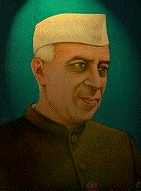 Last Wednesday, November 14, but in 1889, the first Prime Minister of independent India, Jawaharlal Nehru (Hindi: जवाहरलाल नेहरू; Urdu: جواهر لال نهرو), was born. He earned a degree in natural science and a law degree, and while in England befriended Atheist-turned Theosophist Annie Besant. In 1916, Nehru met Mohandas Gandhi, another British-educated Indian, and was attracted to Gandhi’s ideas on independence and nationalism. “No country or people who are slaves to dogma and dogmatic mentality can progress,” said Nehru. From 1920 to 1947, Nehru spent a total of ten years in jail for his political resistance to British rule. But the movement was ultimately successful in expelling the British from India and in 1947 Nehru became the first Prime Minister of Independent India. In his Autobiography, Nehru wrote, “The spectacle of what is called religion, or at any rate organized religion, in India and elsewhere, has filled us with horror, and I have frequently condemned it and wished to make a clean sweep of it.” His life’s work was to create an India where there would be no religious influence upon the government. It was Jawaharlal Nehru who said, “I want nothing to do with any religion concerned with keeping the masses satisfied to live in hunger, filth, and ignorance. I want nothing to do with any order, religious or otherwise, which does not teach people that they are capable of becoming happier and more civilized, on this earth…. To attain this I would put priests to work, also, and turn the temples into schools."
Last Wednesday, November 14, but in 1889, the first Prime Minister of independent India, Jawaharlal Nehru (Hindi: जवाहरलाल नेहरू; Urdu: جواهر لال نهرو), was born. He earned a degree in natural science and a law degree, and while in England befriended Atheist-turned Theosophist Annie Besant. In 1916, Nehru met Mohandas Gandhi, another British-educated Indian, and was attracted to Gandhi’s ideas on independence and nationalism. “No country or people who are slaves to dogma and dogmatic mentality can progress,” said Nehru. From 1920 to 1947, Nehru spent a total of ten years in jail for his political resistance to British rule. But the movement was ultimately successful in expelling the British from India and in 1947 Nehru became the first Prime Minister of Independent India. In his Autobiography, Nehru wrote, “The spectacle of what is called religion, or at any rate organized religion, in India and elsewhere, has filled us with horror, and I have frequently condemned it and wished to make a clean sweep of it.” His life’s work was to create an India where there would be no religious influence upon the government. It was Jawaharlal Nehru who said, “I want nothing to do with any religion concerned with keeping the masses satisfied to live in hunger, filth, and ignorance. I want nothing to do with any order, religious or otherwise, which does not teach people that they are capable of becoming happier and more civilized, on this earth…. To attain this I would put priests to work, also, and turn the temples into schools."
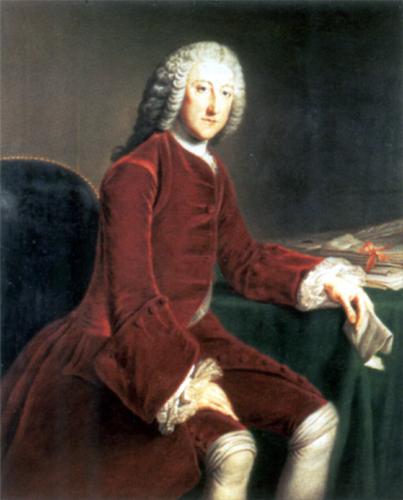 Last Thursday, November 15, but in 1708, English statesman William Pitt the Elder, was born. He was a novel politician in a largely corrupt age, with a reputation for incorruptibility, serving under both the second and third King Georges. In 1766 Pitt became Lord Privy Seal and nominal Prime Minister, but eloquently opposed punitive measures against, and the war on, America, including the use of Indians against the citizens. Along with the Younger Pitt, he was so skeptical of religion that he was as close to Atheism as prudence would allow. An “Atheistic Letter on Superstition” appeared in The London Journal in 1733, widely believed to be Pitt’s writing, in which the author says that “the only true divinity is humanity.” Biographer Basil Williams denies Pitt’s authorship, but ratifies his skepticism, saying he had “a simple faith in God,” or was at best a Deist. Williams also quotes from unpublished sources a “fierce denunciation” by Pitt of those who “converted a reverential awe into a superstitious fear of God.” That Pitt was far from a Christian is attested by no less than William Wilberforce: referring to Pitt as the 1st Earl of Chatham, the churchman notes in his Correspondence (1840), “Lord C. died, I fear, without the smallest thought of God.”
Last Thursday, November 15, but in 1708, English statesman William Pitt the Elder, was born. He was a novel politician in a largely corrupt age, with a reputation for incorruptibility, serving under both the second and third King Georges. In 1766 Pitt became Lord Privy Seal and nominal Prime Minister, but eloquently opposed punitive measures against, and the war on, America, including the use of Indians against the citizens. Along with the Younger Pitt, he was so skeptical of religion that he was as close to Atheism as prudence would allow. An “Atheistic Letter on Superstition” appeared in The London Journal in 1733, widely believed to be Pitt’s writing, in which the author says that “the only true divinity is humanity.” Biographer Basil Williams denies Pitt’s authorship, but ratifies his skepticism, saying he had “a simple faith in God,” or was at best a Deist. Williams also quotes from unpublished sources a “fierce denunciation” by Pitt of those who “converted a reverential awe into a superstitious fear of God.” That Pitt was far from a Christian is attested by no less than William Wilberforce: referring to Pitt as the 1st Earl of Chatham, the churchman notes in his Correspondence (1840), “Lord C. died, I fear, without the smallest thought of God.”
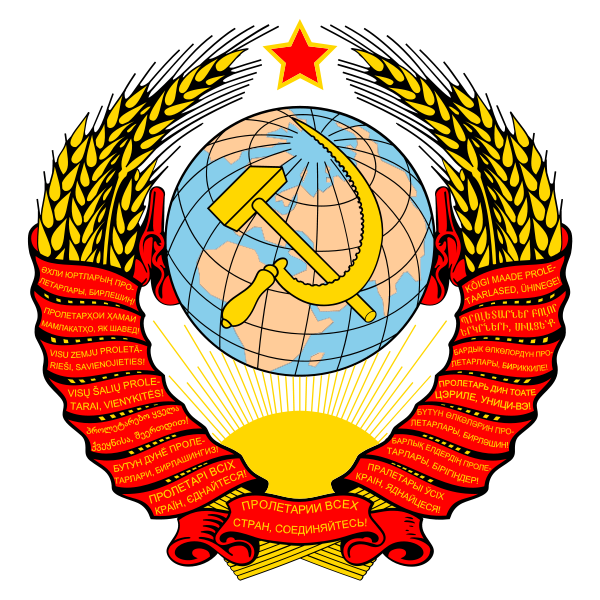 Yesterday, November 16, but in 1933, the United States recognized the Soviet Union when President Roosevelt established diplomatic relations with the USSR – sixteen years after the Russian Revolution. Since before the 1917 Revolution, the charges have been (a) that Communist Russia killed millions because their leaders had no religion or were Atheist and (b) that Atheism leads to Communism. The charges rest on a misunderstanding of Atheism. Atheism is not an ideology or belief system; in fact, Atheism is simply an absence of belief in a God or gods: Atheism is to religion as “bald” is to hair color. It is true that the Bolsheviks discouraged religious worship, closed some churches and stole church property and wealth. One might wonder why the churches were so wealthy and the people so poor but, again, a complete story would show that the Russian Orthodox Church was the confidante of and collaborator with a corrupt and repressive Russian monarchy. Yes, the Soviet leaders were Atheists. But his motivation did not spring from a hatred of religion or a dogmatic Atheism: Stalin was a Soviet first, an Atheist only incidentally, and the Soviet state was set up to be a quasi-religion itself.
Yesterday, November 16, but in 1933, the United States recognized the Soviet Union when President Roosevelt established diplomatic relations with the USSR – sixteen years after the Russian Revolution. Since before the 1917 Revolution, the charges have been (a) that Communist Russia killed millions because their leaders had no religion or were Atheist and (b) that Atheism leads to Communism. The charges rest on a misunderstanding of Atheism. Atheism is not an ideology or belief system; in fact, Atheism is simply an absence of belief in a God or gods: Atheism is to religion as “bald” is to hair color. It is true that the Bolsheviks discouraged religious worship, closed some churches and stole church property and wealth. One might wonder why the churches were so wealthy and the people so poor but, again, a complete story would show that the Russian Orthodox Church was the confidante of and collaborator with a corrupt and repressive Russian monarchy. Yes, the Soviet leaders were Atheists. But his motivation did not spring from a hatred of religion or a dogmatic Atheism: Stalin was a Soviet first, an Atheist only incidentally, and the Soviet state was set up to be a quasi-religion itself.
But isn’t it true that Stalin’s Atheism set him free to murder hundreds of thousands, without fear of consequences, here or hereafter? This idea makes three errors: first it erroneously assumes that “mass murderer” is the natural, unchurched state of humanity. Second, it discounts the corrupting influence of Communist ideology, and, for that matter, statist and militarist power in the hands of a paranoid despot. Finally, it conveniently overlooks the mass murders committed by Christians throughout European history. One might ask, if they are so morally superior, what set Christians free to murder so many? Atheism does not lead to Communism anymore than disbelieving in Santa Claus leads to stealing toys from kids. Religion and ideology both can turn morality on its head: Communist or Christian, doing what you are told, no matter what is right, is immoral. Morality resides in doing what is right, no matter what you are told.
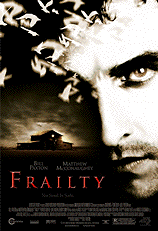 Today, November 17, but in 2001, the directorial debut of film actor Bill Paxton, entitled Frailty, was first viewed at the Deep Ellum Film Festival in Texas. Paxton, who played “Dad,” was born in Texas, as were his co-stars, Matthew McConaughey, playing the character introduced as Fenton Meiks, and Powers Boothe, playing FBI Agent Wesley Doyle. Frailty begins with the son of “Dad” Meiks (McConaughey) introducing himself to FBI Agent Doyle (Boothe) and claiming to know the identity of the “God’s Hand” serial killer Doyle has been tracking. There follow extended flashbacks in which the peaceful-yet-troubled Meiks relates to Doyle how, when he was a pre-teen, his father was visited by an angel who gave him a list and a mission: to destroy demons masquerading as human beings. The film carries the point to its perverse end: if you believe God speaks to you, how can you disobey him? By its own logic, no matter how immoral your actions may seem to someone who didn’t experience the visions, if it’s God’s will, it can’t be wrong. And since “Dad” (and only “Dad”) sees the true demons, we are left wondering – if God indeed speaks to mankind – that he might after all be right. As critic Roger Ebert wrote in his review of Frailty, “Heaven protect us from people who believe they can impose their will on us in this world because of what they think they know about the next.” With all due respect to Mr. Ebert, from religious fanatics – whether they be a crazed Jim Jones or a comparatively sane Pat Robertson – protection will not come from the sky!
Today, November 17, but in 2001, the directorial debut of film actor Bill Paxton, entitled Frailty, was first viewed at the Deep Ellum Film Festival in Texas. Paxton, who played “Dad,” was born in Texas, as were his co-stars, Matthew McConaughey, playing the character introduced as Fenton Meiks, and Powers Boothe, playing FBI Agent Wesley Doyle. Frailty begins with the son of “Dad” Meiks (McConaughey) introducing himself to FBI Agent Doyle (Boothe) and claiming to know the identity of the “God’s Hand” serial killer Doyle has been tracking. There follow extended flashbacks in which the peaceful-yet-troubled Meiks relates to Doyle how, when he was a pre-teen, his father was visited by an angel who gave him a list and a mission: to destroy demons masquerading as human beings. The film carries the point to its perverse end: if you believe God speaks to you, how can you disobey him? By its own logic, no matter how immoral your actions may seem to someone who didn’t experience the visions, if it’s God’s will, it can’t be wrong. And since “Dad” (and only “Dad”) sees the true demons, we are left wondering – if God indeed speaks to mankind – that he might after all be right. As critic Roger Ebert wrote in his review of Frailty, “Heaven protect us from people who believe they can impose their will on us in this world because of what they think they know about the next.” With all due respect to Mr. Ebert, from religious fanatics – whether they be a crazed Jim Jones or a comparatively sane Pat Robertson – protection will not come from the sky!
Other dates of note this week—
November 11: Freethought writer Joseph McCabe (1867)
November 14: pioneering Scottish geologist Charles Lyell (1797)
We can look back, but the Golden Age of Freethought is now. You can find full versions of these pages in Freethought history at the links in my blog.

